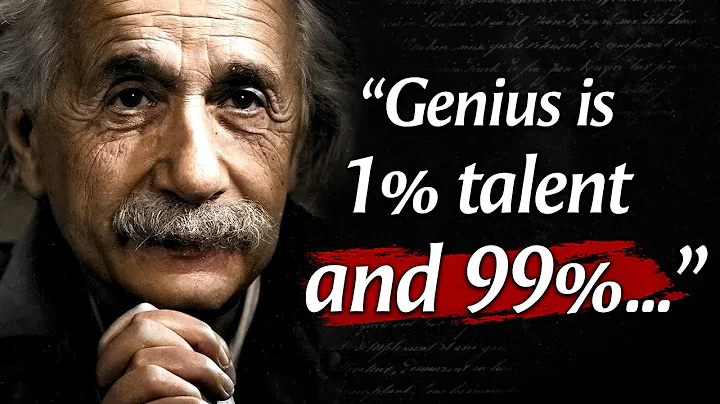
When a local leading cadre talked about his political experience and insights, he summarized the "16-character motto" for job promotion: " personal efforts, guidance from superiors, help from nobles, and supervision by opponents.". As soon as this statement came out, it immediately won the approval of some leading cadres, and they confirmed its reliability with their own personal experience and real experience. Later, when chatting with several classmates who had taken up leadership positions at the county level, they also agreed with the "Sixteen-Character Proverb". This cannot help but arouse our thinking - what kind of conclusion will be drawn from the positive interpretation, and what conclusion will be drawn from the negative interpretation?
1. Positive interpretation
Personal success first depends on "personal efforts" as an internal factor. Judging from the provisions of the "Regulations on the Appointment of Cadres", leading party and government cadres should have six basic conditions, especially "a strong sense of revolutionary ambition and political responsibility, practical experience, organizational ability to be competent in leadership work, cultural level and professional knowledge”.

"Experts' guidance" The "experts" in are books and practice. The second is those who are experienced, capable and knowledgeable. These people can be superiors, peers, colleagues, subordinates, friends, experts, or scholars. As the saying goes, "A conversation with you is worth ten years of reading." The third is the people. The people may be unpretentious, but they understand best the actual effects and shortcomings of policies and legal systems.
"Help from noble people" For party and government cadres, it means using their own integrity and personality charm to handle various relationships and create a good working and living environment for themselves. "elegant people" can often give themselves a helping hand or help them at critical moments, so that they can tide over difficulties or achieve what they want. Party and government cadres should use their good conduct to create an interpersonal environment conducive to their own growth, make others think it is worth helping you, and support you openly and covertly at critical moments. Especially when mistakes occur at work, others do not add insult to injury, but point out the problem and criticize in good faith, while still trusting you and supporting you to improve your work.

"Opponent supervision" means that party and government cadres must cultivate a spirit of conscientiousness, strict self-discipline and an awareness of clean governance. Some people say that the supervision of "opponents" is stricter than the supervision of others by any organization, system or scientific instrument. When a person who is determined to do great things is doing something, he should always think that there is a pair of "opponents" eyes behind him watching him. , paying critical attention to every move he makes, and all he can do is to be better and more perfect than his "opponent" imagined.
2. Understand the negative side
Regarding "individual efforts", if we understand it from the negative side, some party and government cadres firmly believe that "if you don't run, don't send, you will stay where you are; if you just run without sending, you will be transferred at the same level; if you run and send, you will be promoted and reused." unspoken rules. is not trying to improve personal abilities and work performance, but is focusing on establishing a good personal relationship with superiors or team members, or speculating, or bribery, or running for official positions, or being dominated by the political performance concept of eager for quick success and quick gain. Make some false political achievements and formalistic performances to obtain job promotions.
The "master" in "advice from an expert", in a negative context, refers to those people who are believed to have some kind of "mysterious power" who can figure things out, or who can point out "shortcuts" and open up "joints" in officialdom. "People. For the former, "advice from experts" turns into believing in fortune telling and Feng Shui. Therefore, superstitious practices such as praying to gods and Buddhas, reading feng shui, and telling fortunes are relatively popular in officialdom. In some places, it is a common practice to build temples and erect Buddhas. Some party members and leading cadres build office buildings and choose offices. They require gods to worship Buddha for feng shui. When making work decisions, some party and government leading cadres "do not ask the people but ghosts and gods" and "don't believe in Marxism and Lenin but believe in ghosts and gods." In the past, wherever political and business celebrities gathered, there was no shortage of Feng Shui masters with various titles following them. For the latter, "advice from an expert" has turned into relying on brokers or speculation, or seeking refuge in certain party and government leading cadres who hold higher positions than themselves and hold real power.
The "noble people" in "noble people help" may specifically refer to those superior leaders or leaders at the same level who have a higher position and greater power than themselves, or businessmen with strong financial resources, or powerful social personnel. In order to advance their positions, some party and government leading cadres often form a network of relationships with a major leader, turning their loyalty to the party into loyalty to a certain person and to a network of relationships, and are keen on cultivating "small circles", "Clique". As a result, "helping others" may turn into seeking a protective umbrella, lining up camps, forming cliques, being a sugar daddy, or even relying on evil forces to rise to power. In 2005, the case of Ma De, the former secretary of the Communist Party Committee of Suihua City, Heilongjiang, involved more than 260 party and government cadres. More than half of the cadres at division level and above in Suihua City, including 10 counties and cities under its jurisdiction, were involved in the case. The recently disclosed series of corruption cases involving Luo Yinguo, the former secretary of the Maoming Municipal Party Committee in Guangdong, involves 303 party and government cadres. In fact, corruption cases are often related to the concept of some party and government cadres that "rich people help each other."

"Adversary oversight" is both unreliable and ridiculous. does not emphasize establishing systems, abiding by systems, and relying on systems to solve supervision problems. This will not only make the system a mere formality, but also make party and government cadres fall into intrigues and intrigues, wasting a lot of precious energy and time in unnecessary In the struggle, the gains outweigh the losses, which not only affected the unity among comrades, but also caused administrative inefficiency and high costs.
3. Reflection on "Proverbs"
Traditional political and cultural terms such as "master", "noble" and "opponent" are still keywords in the discourse system of party and government leading cadres. "The nobles help each other and the opponents supervise" thus have varying degrees of recognition. This is the reason why the "Sixteen-Character Proverb" is popular among party and government leading cadres.
It is necessary to avoid the disadvantages of unspoken rules such as the "Sixteen-Character Proverb", so that cadres neither painstakingly seek "advice from experts" nor painstakingly seek "help from noble people", nor are they always wary of "opponent supervision", but It is to work honestly and diligently and put your mind and energy on your work. We need to reuse those outstanding cadres who are politically firm, have a pioneering and innovative spirit, have practical results, are honest and honest, and are recognized by the masses. We should not use those who use power for personal gain and self-interest. Those who cannot be trusted by officials, cadres and the masses should not be those who are irresponsible, have personal relationships, and speculate, those who do not follow principles and do not distinguish between right and wrong should not be used, and those who do not do practical things and live in inaction should not be used.





















